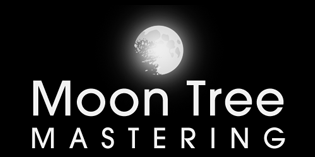In the digital age, music production has undergone a transformative evolution. With the advent of Digital Audio Workstations (DAWs), the possibilities for creating and refining music have expanded exponentially. Among the various stages of music production, mastering holds a paramount position. In this article, we will delve into the importance and benefits of mastering DAW, exploring how it enhances the quality, impact, and overall experience of your musical creations.
The Art of Mastering: Unleashing the Full Potential
Mastering is the final step in the music production process, where the magic truly happens. It involves optimizing the audio tracks, ensuring a cohesive sound across an album, and preparing the music for distribution across different platforms. Mastering DAW empowers artists and audio engineers to elevate their tracks to a professional level, unlocking the full potential of their musical compositions.
Enhanced Sonic Quality: The Ultimate Goal
One of the primary benefits of mastering DAW is achieving superior sonic quality. By using precise tools and techniques, DAWs allow for meticulous control over various elements such as EQ, compression, stereo imaging, and dynamic range. This enables the enhancement of clarity, depth, and overall balance, resulting in a polished and professional sound that captivates listeners.
Consistency and Cohesion: Creating a Harmonious Album
For artists working on albums or EPs, mastering DAW plays a vital role in maintaining consistency and cohesion throughout the project. With DAWs, the mastering process can ensure that all tracks have similar loudness levels, tonal characteristics, and sonic signatures. This uniformity enhances the listening experience, as the entire album feels like a cohesive piece of art rather than a collection of individual songs.
Compatibility Across Platforms: Reaching a Wider Audience
In today’s digital landscape, music is consumed across various platforms and devices. Mastering DAW allows artists to optimize their tracks for different mediums, ensuring compatibility and maximizing the listening experience across streaming services, CDs, vinyl, radio, and more. By tailoring the sound to suit each platform, artists can reach a wider audience and make a lasting impact.
Standing Out in the Crowd: Professionalism and Marketability
In a highly competitive music industry, professionalism and marketability are crucial for success. Mastering DAW gives artists a competitive edge by providing a professional finish to their tracks. A well-mastered song stands out from the crowd, grabbing the listener’s attention with its sonic richness, clarity, and impact. It elevates the perceived value of the music and enhances its marketability in an oversaturated market.
Time and Cost Efficiency: Empowering Independent Artists
Traditionally, mastering required booking expensive studio sessions with professional engineers. However, with mastering DAW, independent artists now have the power to master their own tracks at their convenience and within their budget. This empowers musicians to maintain creative control over their work, save time, and allocate resources to other aspects of their music career.
Collaboration and Feedback: Refining Your Sound
Mastering DAW also facilitates collaboration and feedback. Artists can share their work with collaborators, producers, or mastering engineers in different locations, making it easier to refine and enhance the sound through effective communication. This collaborative approach helps artists grow and develop their craft, ultimately leading to a stronger and more refined musical output.
Preserving the Artistic Vision: An Artist’s Perspective
Mastering DAW allows artists to preserve their artistic vision throughout the production process. With the ability to fine-tune the sound according to their creative intentions, artists can ensure that their music reaches the audience exactly as intended, with every subtle nuance and emotional impact intact.
Conclusion
In conclusion, mastering DAW is an essential step in music production, offering a wide range of benefits to artists and audio engineers. From enhancing sonic quality and ensuring consistency to increasing marketability and preserving artistic vision, mastering DAW empowers musicians to create exceptional music that resonates with their audience. With the accessibility and versatility of DAWs, artists can unlock the full potential of their musical creations and leave a lasting impact in the ever-evolving world of music.
FAQs
Can I master my tracks without using a DAW?
While it is possible to use hardware-based mastering tools or seek professional mastering services, mastering DAWs provide the convenience, flexibility, and cost-effectiveness necessary for independent artists to master their own tracks.
What are some popular mastering DAWs available in the market?
Some popular mastering DAWs include Steinberg’s WaveLab, iZotope’s Ozone, FabFilter Pro-L, and Apple’s Logic Pro.
Is mastering DAW only for professional musicians?
No, mastering DAW is beneficial for musicians of all levels, from beginners to professionals. It enables artists to refine their tracks and elevate their sound to a professional standard.
How long does it take to master a track using a DAW?
The time required for mastering depends on various factors, such as the complexity of the track, the desired level of refinement, and the mastering engineer’s expertise. It can range from a few hours to several days.
Can mastering DAW fix poorly recorded or mixed tracks?
While mastering can enhance the overall sound quality, it cannot fix fundamental issues with poorly recorded or mixed tracks. It is essential to ensure a solid foundation in recording and mixing before proceeding to the mastering stage.
